Malaria Prevention & Control Staff and Volunteers in Cambodia
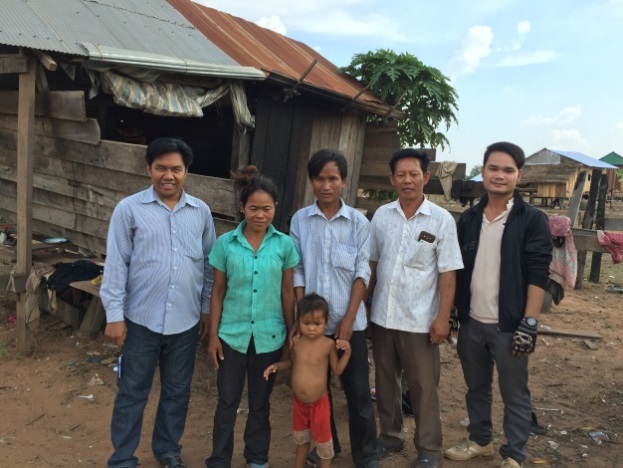
In Cambodia, there have been great gains in reducing the morbidity and fatality of malaria. In 2015 there were only 10 reported deaths from malaria. Over 80% of cases occurred amongst people age 15-49. Although this age group is often less vulnerable, they also often comprise the primary breadwinners of families and thus each case of malaria means a loss of precious income through payment for treatment or lost labor time. In addition, drug-resistant strains of the disease have been on the rise in the border regions of the country. This can be caused by exposure to poor quality medicine, or more commonly failure to comply with medication directions. Mobile and migrant workers are particularly at risk because they work in the wooded border regions of Cambodia with high incidence, they often come from areas with less incidence of malaria, and they often work through the night.
PfD is working with the Global Fund in Kratie province to create an Early Warning System which will create a database tracking the emergence of drug-resistant cases. In order to do this, a network of PfD staff, volunteers, and partners have to draw and test blood samples from patients, and submit them for verification. It is this network that is the heart of PfD’s Regional Artemisinin Project.

Ry Monika
Kratie is among the poorest provinces in Cambodia, so those who contract malaria are sometimes unable to afford a visit to a private clinic. However, if they do choose the private clinic route, they will have the pleasure of seeing Miss Ry Monika. At her clinic, she will administer medicine and take a blood sample for a PfD staff member to collect. At this private clinic, the policy does not include a follow up with the patients. Reaching patients after they leave can be a key challenge, as many do not have phones or adequate service.
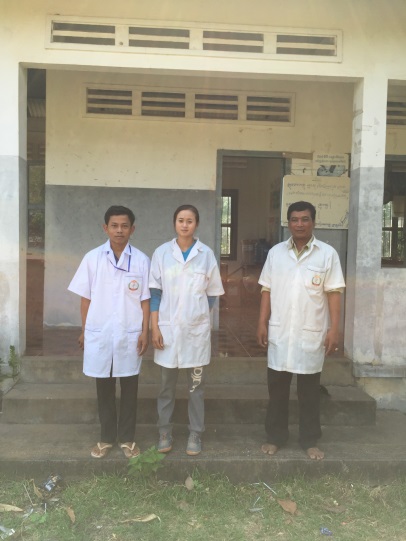
Ra Sarvuth on left
If a patient makes their way to the public clinic, Mr. Ra Sarvuth will take a blood sample and request the patient returns in 2 weeks. During this time, the blood sample has been collected by PfD staff and analyzed. Mr. Sarvuth works diligently to contact those who do not return.
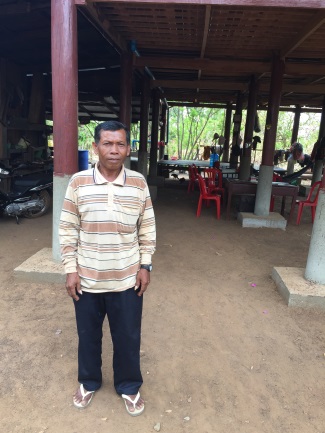
Bin Soth
With the help of trained Volunteer Malaria Workers (VMWs), all who need assistance can be treated and tested. Bin Soth has been a VMW since 2004 and has worked diligently with PfD on other malaria control programs like net distribution and education campaigns. He has been trained by PfD on health education and behavior change communication (BCC) and has also been trained and provided medicines by the national program. Bin Soth also collects blood samples which are collected by PfD staff. If the malaria is a serious case or doesn’t improve then he refers the patient on to further care at a hospital or health center. Within the village that Bin Soth works and lives, he covers about 75 families over an area of 2-3km.
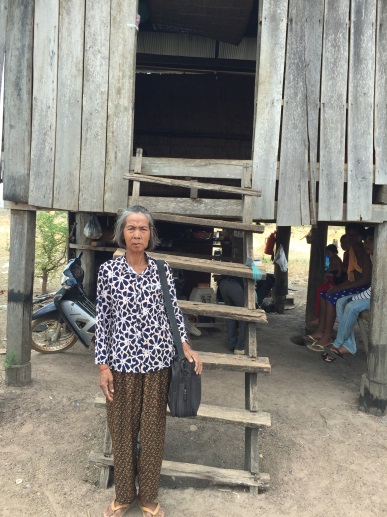
Tin Tak
Tin Tak has been a VMW since 2004 in the village of Batheuy, where her coverage area is about 3km. Like Bin Soth, Tin Tak takes blood samples for PfD to collect and she refers more complex cases and pregnant women on to hospitals and health clinics. However, the nearest health center is 23km away and the road in very poor condition. Therefore, the work she does in her community is vital to those who cannot make that trip.

Sreang Thavy center; Wife to left; One of their 5 children in front; PfD staff
Our VMWs are passionate about serving their friends, family and communities. They are proud to make every PfD meeting to keep current on our malaria prevention and control programs. Their service has been invaluable to beneficiaries like Sreang Thavy. Sreang Thavy has repeatedly contracted malaria due to his work in the nearby forest. When we met Sreang, he was sick for the 3rd time in just one year. After returning home from the forest, he was feeling very sick with a fever. At that point he knew he had to go to the local health post where they took a blood sample. It takes a while to recover enough strength to return to working in the forest, and this time can be economically damaging as he is unable to work and his family of 7 has no other source of income.
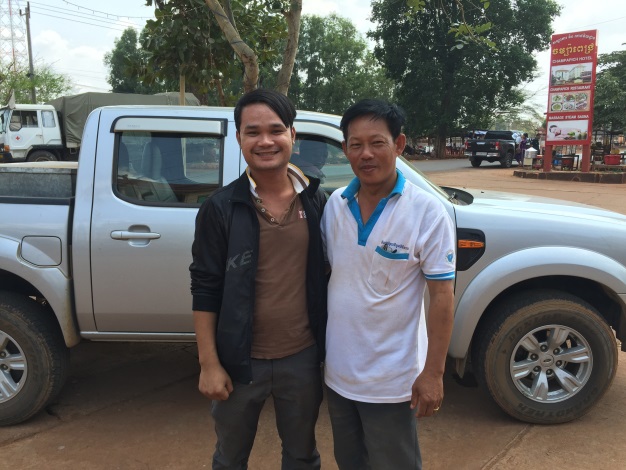
Kheng Phyreth and Im Ratana
Working tirelessly to prevent malaria in their community is PfD’s local staff based in Kratie province, such as Kheng Phyreth and Im Ratana. They map beneficiaries, collect samples from the clinics and VMWs, and maintain relationships with our partners. They often work long hours, having to reach remote areas on motorcycle. They are key members of the PfD team, working at the local level to achieve sustainable outcomes.

